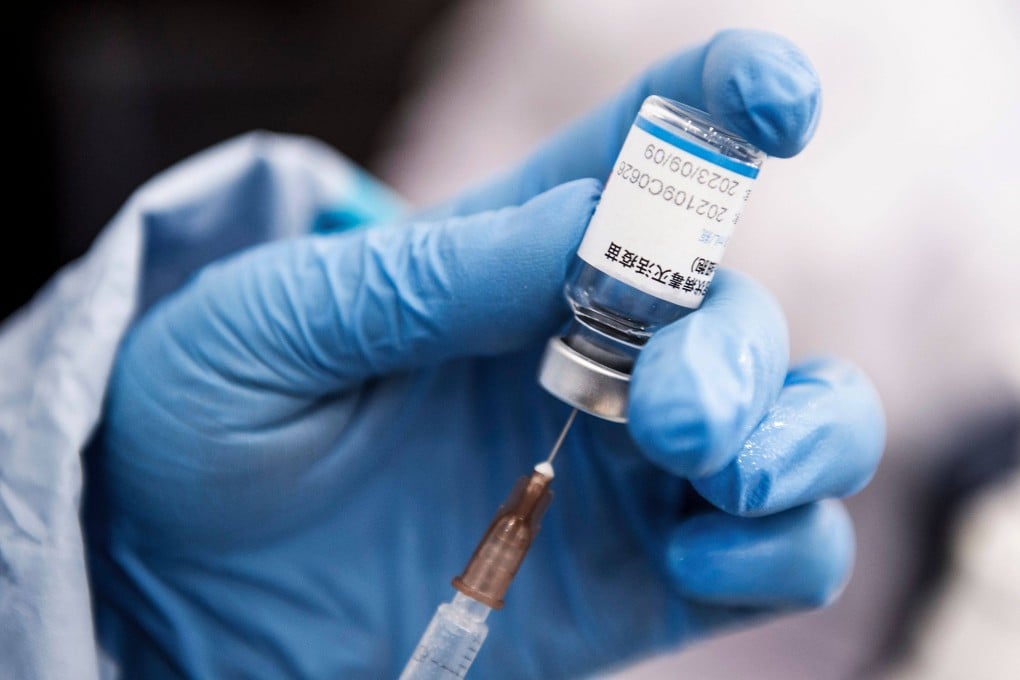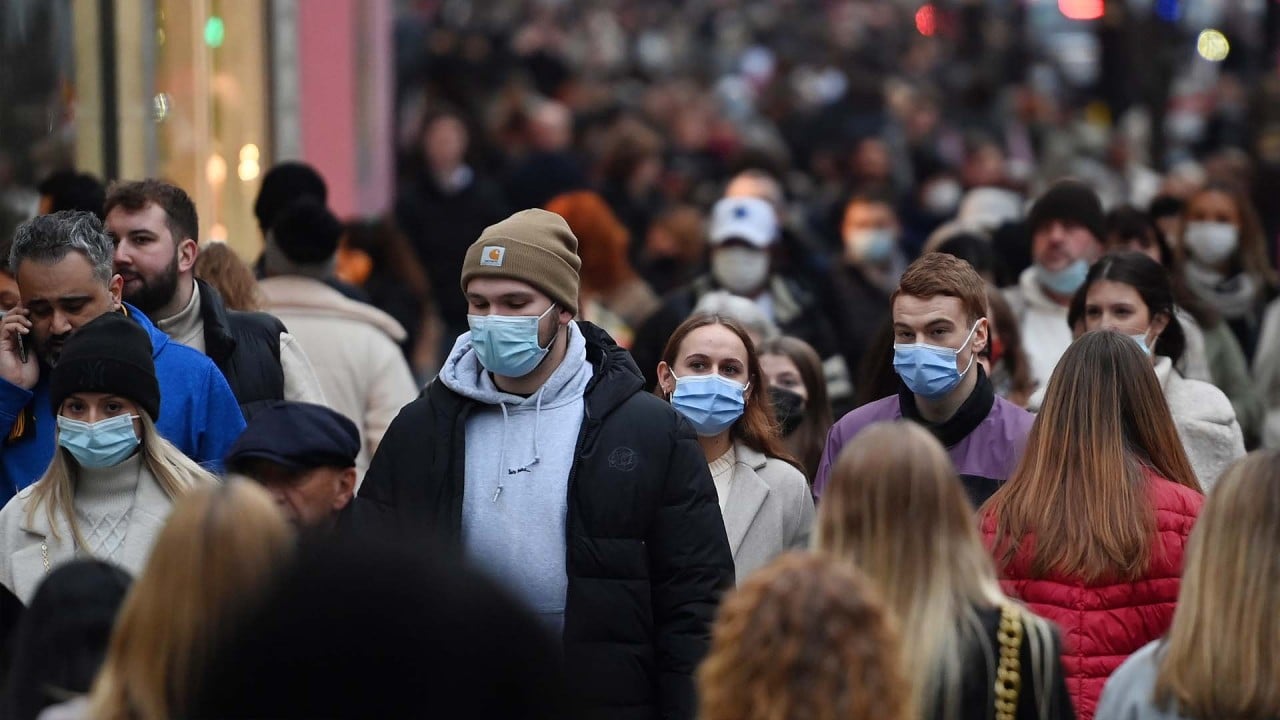Covid-19 booster from China’s Sinopharm is weaker against Omicron, study finds
- The jab shows significantly weaker neutralising activity against the variant than against an older strain, researchers say
- The vaccine’s neutralising activity eight to nine months after a second dose ‘declined rapidly and could hardly be detected’, making a third dose necessary

Researchers from Shanghai Jiao Tong University and the Institute of Respiratory Diseases said that they had assessed samples from 292 health care workers given a third shot eight to nine months after their second, in a study published on Saturday on preprint server medRxiv.
The study, which has not been peer-reviewed, found that the neutralising antibody activity of a Sinopharm BBIBP-CorV booster against Omicron showed a 20.1-fold reduction.
Given that Omicron is the most divergent so far of the coronavirus variants, there are concerns that it could evade the immunity given by existing vaccines and cause a large number of breakthrough infections. Waning immunity and viral diversification both create a potential need for further boosters, the study report said.
As supporting evidence, the study found that about eight to nine months after a second dose, the neutralising activity of the Sinopharm jab “declined rapidly and could hardly be detected”, adding to the importance of third booster doses – which have been shown to be capable of enhancing antibody response.
